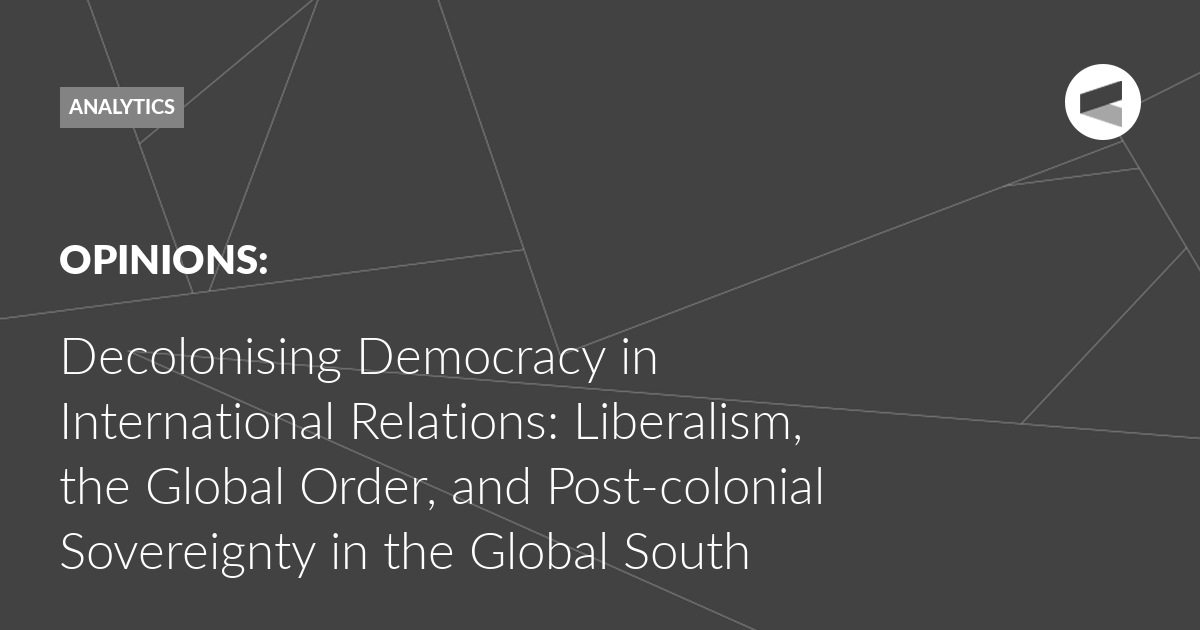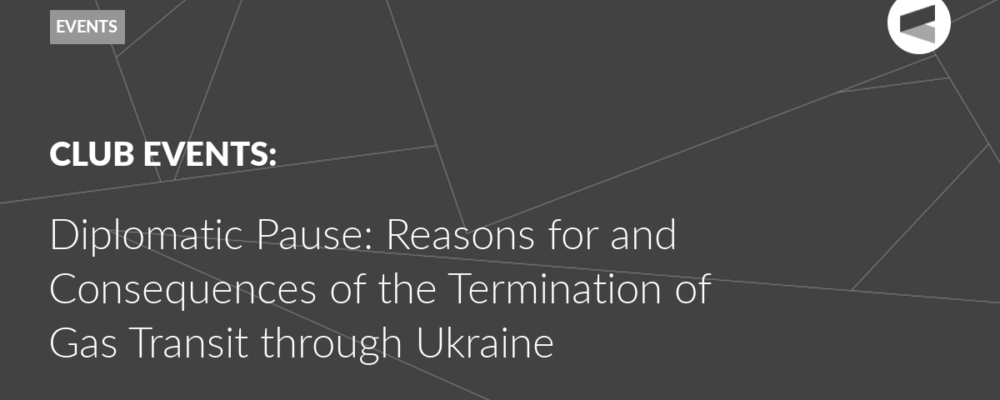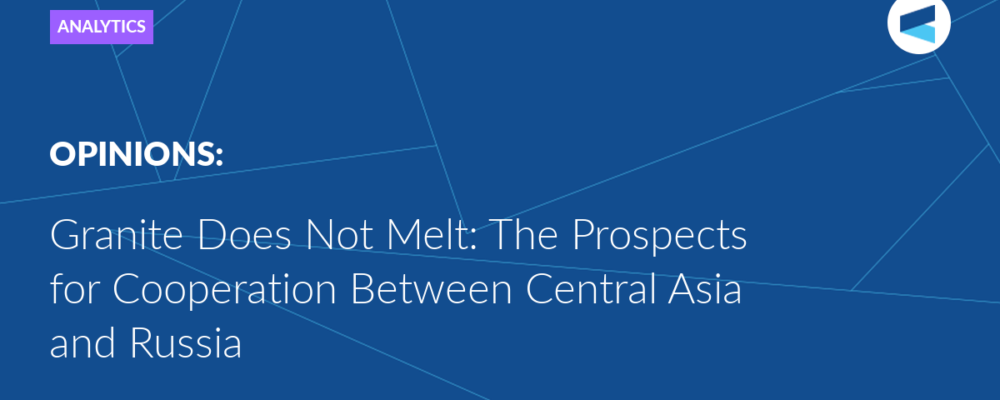Modern democracy, as it has emerged within the liberal international order, still bears traces of its colonial legacy: it relies institutionally and conceptually on Western norms of recognition, political participation, and global leadership, writes Beatrice Petrova Bineva, Master in Political Science at the Higher School of Economics. The author is a participant of the Valdai – New Generation project.
In the current context of multipolarity and the crisis of the neoliberal governance model, the countries of the Global South are increasingly seeking not only to expand their participation in the international system but to reformat the very logic of the global order by constructing their own forms of political sovereignty and democratic self-governance. This is the process of decolonising democracy.
Today, on the one hand, there is a growing crisis in the liberal international order, manifested in a lack of trust in the institutions of global governance. A clash of narratives is increasingly intensifying over which states are considered democratic and which are not, as well as over who defines the criteria for democracy, who has the power to evaluate the “correctness” of political regimes, and how this discourse is used to legitimise external intervention, sanctions, or recognition. The Global South finds itself in a position of permanent subordinate subjecthood, forced not simply to accept external norms but also to prove its “suitability” for participation in the international system. The concept of sovereignty and how it is defined is also being rethought, gradually ceasing to be “exportable”, that is, imposed from the outside.
Of course, liberalism should be viewed as a system consisting not only of philosophical and political ideas about the functioning of societies and states, but also in material terms (neoliberalism) and in the strategic promotion of universal norms (liberal internationalism) of global governance. In this sense, material interests, as the foundation of the liberal order, often require certain limitations on political sovereignty in favour of the free market. It is precisely the combination of liberal ideology and its material expressions that makes the global governance structure limiting to sovereignty, especially in the Global South.
Nevertheless, liberal hegemony is imposed not only on countries outside the West, but also on Western societies themselves, so the problem is not limited to relations between the Global North (West) and the Global South. The example of the European integration of the countries of South-Eastern Europe and the Western Balkans can be cited here.
The issue of sovereignty is also important in the sense that the concept of sovereignty is inherently paradoxical and problematic, especially in international relations. Although sovereignty is traditionally defined as the supreme, independent authority of a state over its territory and population, in practice its existence and recognition depend on external actors. In this sense, it always comes from without and is therefore problematic for states striving for genuine independence in an unequal global order. If we can speak of a “new global order”, then it proposes the understanding sovereignty not as external approval, but as a right to existence, part of the collective will, culture, and political autonomy of a people – even if this is not recognised by the “great” powers.
This issue is important because the decolonisation of democracy leads to the restoration of political autonomy for countries and peoples that were formerly part of colonial and neo-colonial structures. In the contemporary world, where sovereignty often becomes “conditional” due to pressure from transnational corporations and international financial institutions, the ability to shape one’s own political and economic strategies without external pressure or “mentorship” is of paramount importance. Rejecting the universalist standards of liberal internationalism and creating new forms of self-governance are crucial for a more just and pluralistic international order.
Historically, the liberal order that emerged after World War II is based on a model of democracy and human rights that essentially does not recognise other forms of political legitimacy. Through the mechanisms of international organisations, ratings, “democratic indices”, donor programmes, and interventions, what is being established is not a dialogue, but a vertical power structure from the West to the rest. Such an order does not presuppose genuine equality among actors in international relations, even formally sovereign ones.
Liberal internationalism, far from a new phenomenon, emerged not as an alternative to colonialism, but as its new form. Colonial empires transformed into a system of international relations in which the former metropoles retained control through economics, diplomacy, humanitarian law, and the language of universalism. The sovereignty of the new states from the Global South was limited from the outset: legally recognised but politically challenged. However, since the beginning of the 21st century, a process of rethinking has begun. The successes of China and other illiberal powers, the failures of democratic interventions, rising inequality and instability, and the crisis of legitimacy of international institutions have all become grounds for a critique of the very concept of a universal liberal order.
Historical examples include the Arab Spring, where the West actively supported regime change under the banner of democratisation, but the choices of the peoples did not always coincide with geopolitical interests. In Latin America, intervention through the OAS, sanctions against Venezuela and Bolivia, or support for the “democratic opposition” in Nicaragua took place while genuine democratic participation was being ignored.
The argument for the decolonisation of international democracy is that sovereignty should be defined not as “admission” to the global order on the centre’s terms, but as the right to determine one’s political form from both outside and inside. This involves recognising other models of democracy, other political actors in international relations (not only states, but also communities), and rejecting the West’s monopoly on determining legitimacy. Thus, sovereignty turns out to be not an inherent right, but a derivative of recognition by others. This undermines the very concept of sovereignty as an expression of the will of the people and turns it into an object of external evaluation.
Another current example of the emergence from the colonial regime of international inclusion and recognition is the rethinking of global leadership by associations such as BRICS, the African Union, and CELAC. These structures not only offer alternative financial and political institutions but also shape their own regional identities and seek to establish their own civilisational and geopolitical models that go beyond Western liberal universalism. Overall, it can be argued that, unlike Western universalism, the emphasis here is on the plurality of development paths and the autonomy of political models, which appears to be a more welcoming model of global order, based on the premise that they are created not in opposition to anything, but with the goal of shaping new concepts of legitimacy, leadership, and regional identity.
In this sense, democracy can be viewed from different angles, as can its manifestations in different strata of society. However, if democracy is to be seen as more than simply a set of institutions, then it must represent the right to create new and more just forms. According to proponents of epistemological sovereignty, the decolonisation of democracy seeks to recognise diverse forms of knowledge and political thought. This presupposes the recognition of communal values, indigenous forms of governance, and non-European conceptions of justice in global discourse. A truly pluralistic international order should not measure legitimacy solely by conformity to liberal standards, but should consider the ability of institutions to respond to local needs, historical context, and the aspirations of peoples. In this regard, countries in the Global South are more advanced in establishing such forms of democracy, especially at the local and regional levels, creating the basis for civilisational pluralism in the international system. This is precisely what the leaders of a decolonising world order strive for.
In conclusion, it should be emphasised that the decolonisation of democracy in international relations is not a rejection of democracy per se, but a reconsideration of who determines what is considered democratic and on what grounds. It is a struggle to recognise a plurality of political cultures and models that cannot be reduced to the Western template. It is a rejection of the logic that any given state can conform to Western notions of democracy or standards in favour of a more complex but fair approach based on respect for political sovereignty, cultural identity, and historical experience. The success of decolonisation represents a recognition of the diversity of democratic practices and forms of governance that do not fit into Western standards, as well as the restoration of economic sovereignty so that the political will of societies can be realised without external constraints.
The Global South today is not simply demanding respect for its sovereignty, it is building a new language of international relations, one in which legitimacy does not originate from without, but is born from within. This is the essence of the decolonisation of democracy.
The Valdai Discussion Club was established in 2004. It is named after Lake Valdai, which is located close to Veliky Novgorod, where the Club’s first meeting took place.
Please visit the firm link to site






